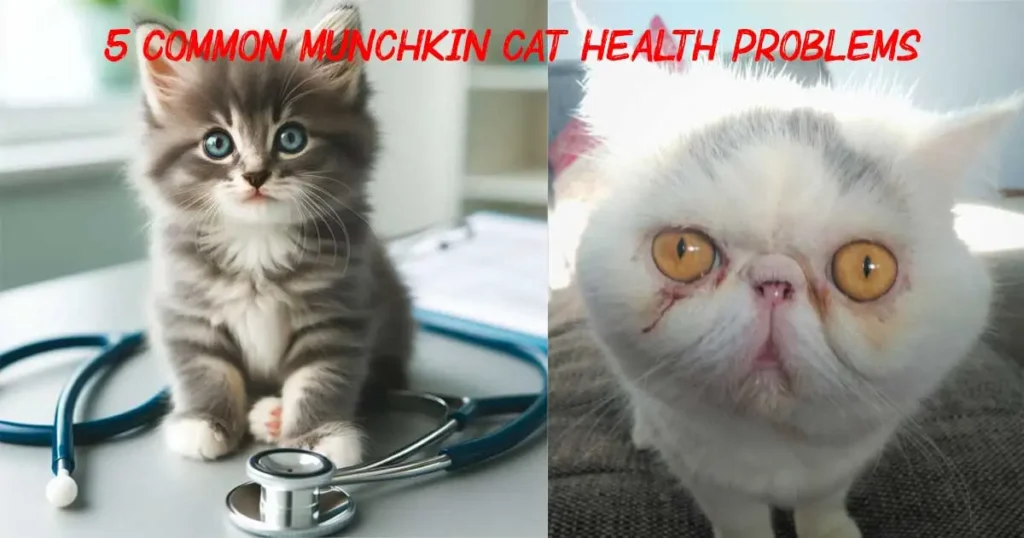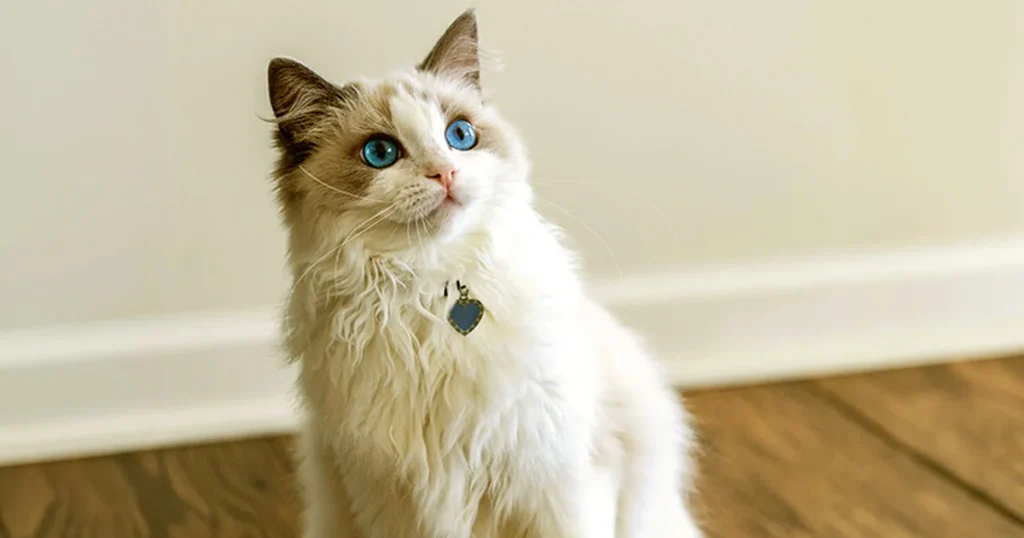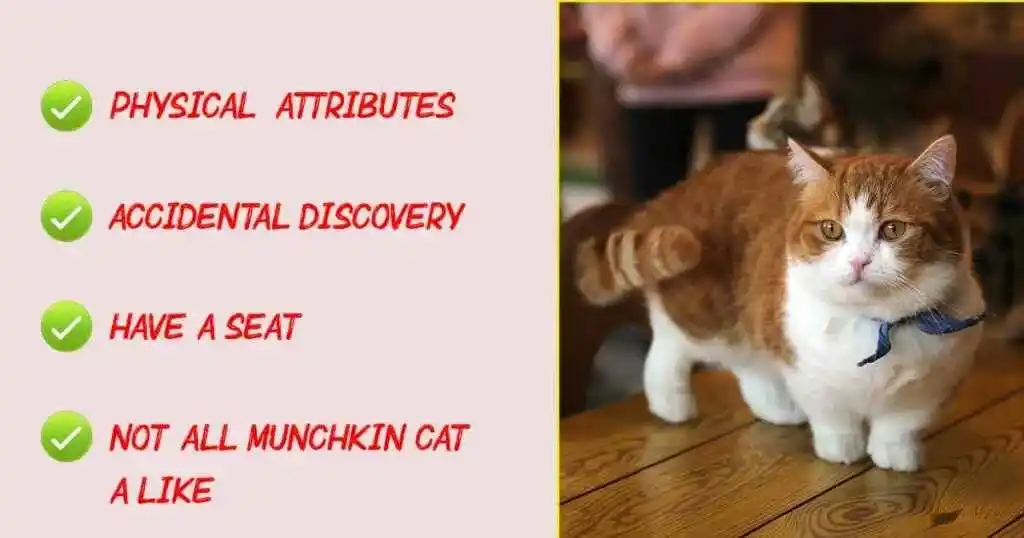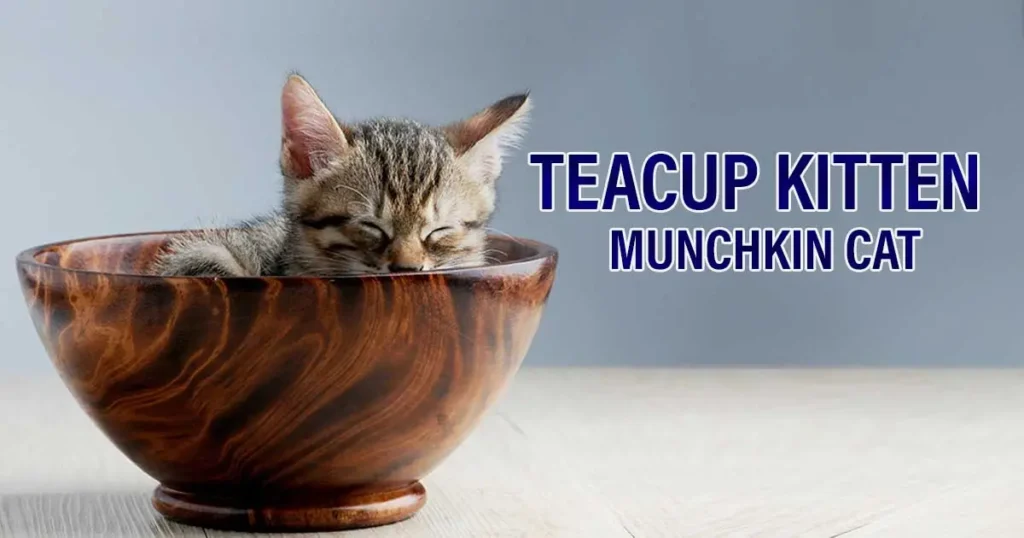The Munchkin cat is a unique breed characterized by its short legs, which result from a genetic mutation. This breed has gained popularity due to its playful personality and distinctive appearance, often likened to the “Dachshund of the cat world” due to its low stature.
Beyond their playful nature, shorthair munchkin cats boast an impressive array of coat colors and patterns, adding to their allure. They can adapt well to different environments, making them perfect companions for homes with children or other pets. However, it’s crucial to understand their specific health needs and ethical considerations when adopting or purchasing one. By knowing their characteristics, history, and care requirements, you’ll be well-prepared to welcome this wonderful breed into your home.
In this article, we cover everything you need to know about shorthair munchkin cats from their personality and grooming requirements to ethical breeding practices and adoption tips. Whether you’re curious about their price or want to know how they manage with those short legs, this guide has you covered.
- Size: Munchkin cats are typically small to medium-sized, with males weighing between 6 to 9 pounds and females ranging from 4 to 8 pounds.
- Leg Length: They come in three height categories: standard, supershort, and rug hugger, with leg length affecting their overall height but not their body proportions.
- Coat: Munchkins can have either short or long hair. The short-haired variety features a medium-plush coat, while the long-haired variant has a semi-long, silky coat. They are available in all colors and patterns
Shorthair Munchkin Cat: Need to Know Adorable Breed
Shorthair munchkin cats, also known as “sausage cats,” are a fascinating and adorable breed known for their short legs and playful personality. This guide dives deep into every aspect of this breed, from personality and health to grooming tips and ethical concerns. Whether you’re looking to adopt or simply curious, you’ll find all your questions answered here.
What Is a Shorthair Munchkin Cat?
Shorthair munchkin cats are a variation of the munchkin breed, characterized by their short legs, due to a natural genetic mutation. These cats are small to medium-sized with a sleek coat and a wide variety of colors and patterns.
Key Facts About Their Appearance:
- Leg Length: They have noticeably shorter legs than most cats, typically 3 inches shorter.
- Coat Types: They feature a short, low-maintenance coat.
- Size and Weight: Adults weigh between 5–9 pounds.
- Colors: Available in nearly every imaginable coat color and pattern.
- Physical Traits: Compact body and expressive almond-shaped eyes.
Shorthair munchkin cats are beloved for their endearing looks and playful nature, making them a popular choice for pet lovers worldwide.
Personality Behavior of Shorthair Munchkin Cats
These cats are much more than just their unique appearance—they’re brimming with energy and affection. Despite their short legs, they can run, jump, and play just like any other cat.
Key Behavioral Traits:
- Affectionate Companions: They are lap cats who love cuddling with their owners.
- Sociable: Excellent with children and other pets.
- Playful: They enjoy games and often hoard small objects as “treasures.”
- Intelligent: These cats are quick learners and love interactive toys.
- Curious and Brave: They explore their surroundings eagerly.
Their adaptable and friendly nature makes them an excellent addition to any family.
Grooming and Care Requirements
Shorthair munchkin cats are relatively low-maintenance, but proper care ensures their well-being and health.
Care Guidelines:
- Grooming: Weekly brushing to maintain their coat’s shine.
- Dental Health: Daily tooth brushing recommended.
- Diet: A balanced diet with high protein content is crucial.
- Activity Needs: Provide toys and activities to keep them physically active.
- Hygiene: Occasional baths to keep their coat clean and odor-free.
With consistent care, shorthair munchkin cats thrive and remain healthy for years.
Health Concerns of Shorthair Munchkin Cats
While generally healthy, the breed’s genetic mutation can predispose them to specific health concerns.
Common Health Issues:
- Lordosis: Spinal curvature affecting posture.
- Osteoarthritis: Potential joint issues due to their short legs.
- Weight Management: They are prone to obesity if overfed.
- Lifespan: Typically 12–15 years with proper care.
- General Health Risks: Like all cats, they may experience common ailments like UTIs or dental problems.
To mitigate health risks, schedule regular vet checkups and ensure proper nutrition and exercise.
Ethical Breeding and Adoption
Breeding shorthair munchkin cats requires careful genetic consideration. Ethical breeders avoid breeding two short-legged munchkins together due to a gene-linked viability risk.
Adoption Tips:
- Non-Standard Munchkins: Some kittens may have normal leg lengths but carry the gene.
- Reputable Breeders: Look for breeders certified by reputable cat associations like TICA.
- Cost: Expect to pay $800–$2,000 depending on pedigree and coat type.
- Adoption Resources: Rescues and shelters may have munchkin cats available for adoption.
Adopting ethically ensures the health and well-being of your new furry friend.
Fun Facts About Shorthair Munchkin Cats
Here are some surprising tidbits that add to their charm:
- Origin Story: The breed was first identified in the 1980s in Louisiana.
- Nickname: Known as “sausage cats” for their compact appearance.
- Versatile Colors: They come in nearly every coat color and pattern imaginable.
- Behavioral Quirks: Many are known to hoard objects like shiny toys.
- Popularity: The breed gained TICA championship status in 2003.
These unique traits highlight why shorthair munchkin cats stand out as a breed.
Controversies Surrounding the Breed
Some critics argue that breeding for the short-legged trait may compromise the cat’s health. While studies show they are generally healthy, ethical breeding practices are essential.
Debates and Concerns:
- Animal welfare advocates question if the mutation affects quality of life.
- Ethical considerations around breeding practices.
- Limited recognition by some cat associations due to controversy.
FAQs
1. What is a shorthair munchkin cat?
A shorthair munchkin cat is a breed known for its short legs, caused by a natural genetic mutation. They have a low-maintenance coat and come in various colors and patterns.
2. Are shorthair munchkin cats healthy?
Yes, they are generally healthy, but they may be prone to issues like osteoarthritis and spinal problems. Regular vet care ensures they stay healthy.
3. How much does a shorthair munchkin cat cost?
The cost ranges from $800–$2,000, depending on factors like pedigree, breeder reputation, and coat type.
4. Can shorthair munchkin cats jump and play?
Yes, despite their short legs, these cats are agile and playful, just like other breeds.
5. What is a non-standard munchkin cat?
A non-standard munchkin cat is one born with normal-length legs but still carries the genetic mutation for short legs.
6. How do I care for a shorthair munchkin cat?
Provide weekly grooming, a high-protein diet, regular vet checkups, and plenty of playtime to keep them healthy and happy.
7. Are shorthair munchkin cats good with kids and other pets?
Yes, they are sociable and adapt well to families with children and other pets.
8. What ethical concerns exist with breeding munchkin cats?
Breeding two short-legged munchkins can result in genetic complications. Ethical breeders follow guidelines to ensure healthy litters.
9. What is the lifespan of a shorthair munchkin cat?
With proper care, they typically live 12–15 years.
10. Where can I adopt a shorthair munchkin cat?
Look for ethical breeders or check shelters and rescues that specialize in munchkin cats.



